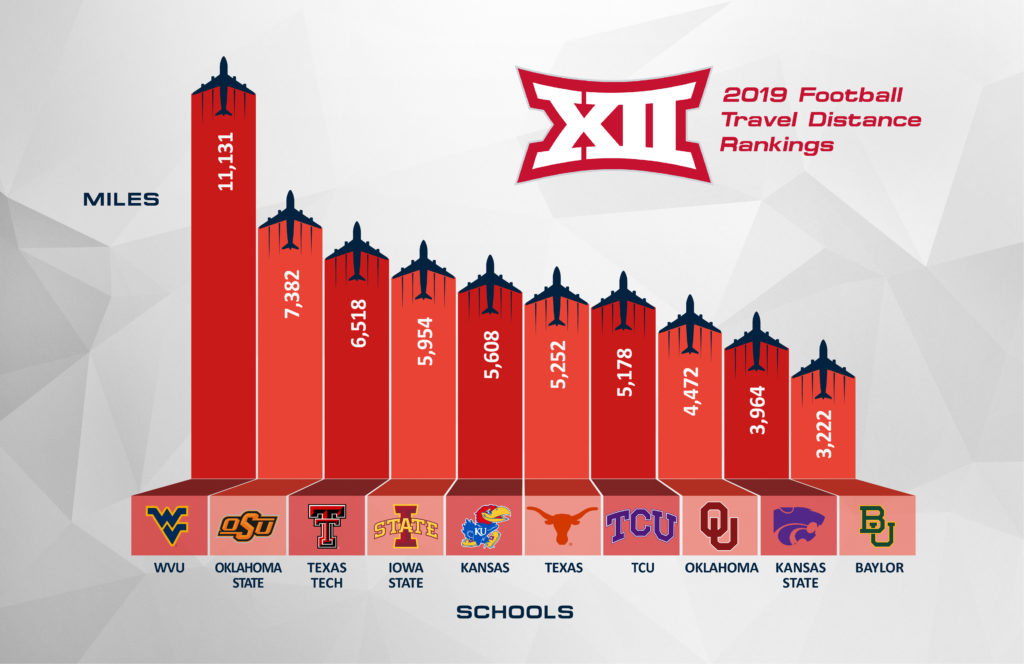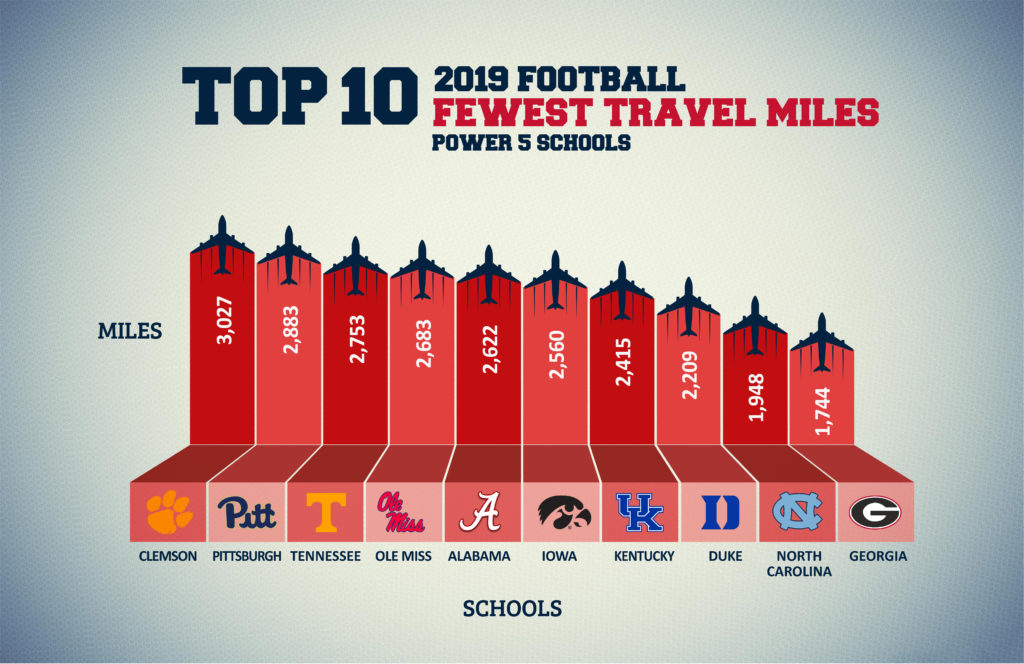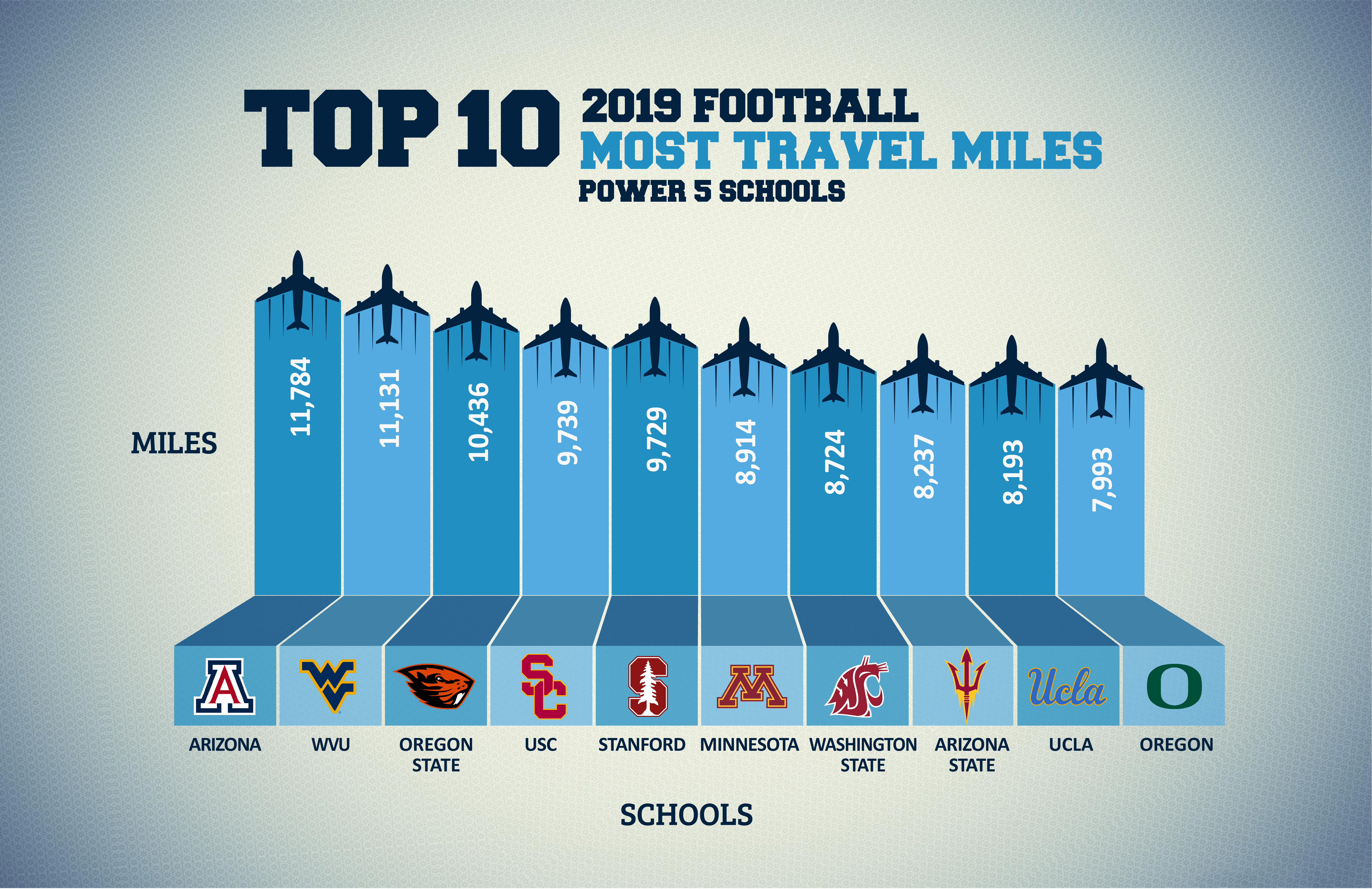MORGANTOWN, W.Va. — Only one Power Five program will log more miles on the road than West Virginia in 2019. The Mountaineers will travel 11,131 miles from campus and back this season. Arizona (11,784 miles) is the only football team logging more.
West Virginia is the only school east of the Mississippi River that will be in the Top 10 most-traveled this season. (Minnesota, which has the river running through the middle of its campus, is the only other non-Pac 12 school on the list).

For West Virginia, this has always been the hard part of the bargain that was required when the program joined the Big 12 in 2012. The conference provided WVU with a financial life raft, as revenues have increased by more than $40 million since leaving the Big East. The downside is that it takes a long time for that raft to float to its nearest neighbor. Given the alternatives, athletic director Shane Lyons will gladly take the arrangement that was worked out by predecessor Oliver Luck.
“There’s always going to be somebody the furthest out of the footprint and someone closest to the center point,” Lyons said. “We’ve gotten used to it. We know how to handle it.”
Lyons compared West Virginia’s travel to commuting, which in this case would be a lot like living in Morgantown and working in Pittsburgh.
“It’s like the commute to work. Some people may only have a 10-minute commute,” he said. “We don’t. But you get used to it. It’s become the norm. It’s just what we do.”
The Mountaineers will travel more this year than they typically do. West Virginia has five Big 12 road games this season, as it does every odd-numbered year. On top of that, the Mountaineers have a non-conference road game at Missouri that adds nearly 1,500 miles to the total.

West Virginia leads the Big 12 in travel by a wide margin. Lyons said the Big 12 has recognized WVU’s natural disadvantage and helped minimize it through scheduling practices.
“There’s some things where the conference has accommodated us in scheduling,” he said. “We’ll never have a back-to-back road game. We’d only have that with a bye week in between.”
Lyons doesn’t think it’s a competitive disadvantage, though.
“Our athletes don’t know any different,” he said. “They get adjusted to it. It makes a long season, but at the same time, it’s just something we have to overcome.”
Many of the top teams in the country find themselves on the opposite end of the travel spectrum from West Virginia. Georgia travels the least of any Power 5 program this season.

Georgia, Alabama and Clemson are among the 10 programs with the least distance to travel this year. Georgia’s entire season — 1,744 travel miles — logs less distance than West Virginia’s trip to Kansas. The short distances traveled by the Bulldogs, Crimson Tide and Tigers would appear to be more correlation than causation where it might factor into their success, however.
There are plenty of lesser programs in the 10 least-traveled schools — like Pitt, which will travel 2,833 miles in pursuit of its first ranked season since 2009.
TWEET @bigahickey
Mileage data compiled by MetroNews reporters Taylor Kennedy and Daniel Woods




